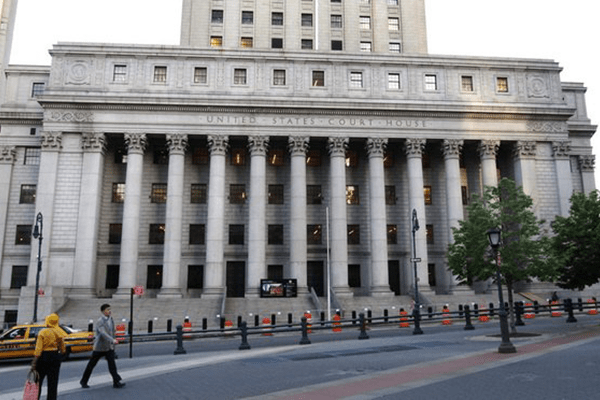Judges Faced With Arguments Over Authority On Land-Use Decisions
By Tina Traster
EklecCo NewCo, the Delaware-based LLC that owns the Palisades Center, and the Town of Clarkstown argued before a panel of judges on Monday at the United States Court of Appeals for the Second Circuit over the mall’s desire to expand.
Arguing for the Palisades Center, Craig Leslie of Phillips Lytle LLP, said “the Supreme Court drew a line as to what governments may or may not do with respect to land-use approvals.” He went on to say towns such as Clarkstown cannot use a discretionary land-use approval or the granting of a discretionary benefit to demand an applicant surrender constitutionally-protected rights or interests that lack proportionality to the impacts of the appeal being sought.”
The appellant is arguing Clarkstown doesn’t have unfettered protection to demand what it wants while the town maintains the lower courts correctly dismissed previous challenges. The Palisades Center in June lost its federal claims in district court where it argued that the restrictive covenant forbidding expansion of the mall without a public referendum violated the center’s 1st and 14th amendment rights.
In response to EklecCo’s opening argument, Chief Judge Robert A. Katzmann said, “Tell me Mr. Leslie, can this be the first time ever that any court has said when a municipality is selling its own property that they can’t put conditions on it?”
“It’s a unique case,” said Leslie, who, on behalf of the Palisades Center, is fighting a town-imposed restriction limiting its right to build out and lease an existing but unused 240,000 square-foot section of the mall’s fourth floor. The 1.85 million square-foot mall needs town and voter approval in order to expand.
“They created a process that required us to come back to them after a two-year moratorium if we wanted to do anything else with the property as opposed to amending the zoning code to say this is the limit on what you can do,” Leslie argued.
Originally the Restrictive Covenant stated EklecCo could obtain its release if EklecCo waited 24 months and Palisades Center was operating at 90% occupancy. The mall owner says it satisfied the initial conditions specified in the Restrictive Covenant and attempted to seek release. But the town converted the condition into a permanent bar on expansion.
EklecCo is arguing the covenant created an entirely new, ad hoc land-use approval process and that it is using that process to block expansion. But another appellate judge on the panel asked whether the town could have outright denied the mall’s request for expansion. In response, the appellant’s attorney argued the planning board could have but not the town, citing that the Town of Clarkstown did not have jurisdiction.
“The town usurped jurisdiction of the planning board,” Leslie said.
The judge countered, saying “if the planning board could have denied the application outright, and the town governs the town as a whole, why doesn’t the town board have the right to place conditions?”
Leslie said the New York State Constitution imbues planning boards with the power to decide such issues. “It creates a panel to avoid the type of abuse you see here,” said Leslie. “The planning board has a public process, hearing requirements, criteria it has to follow.”
But John Flannery of Wilson Eiser, who is defending Clarkstown, said the authority to convey real property lies exclusively with the town.
Flannery also said the mall is in court “challenging an agreement it made 20 years ago to buy town roads.” He said the mall could not build the 1.8 million square foot mall, or potentially a 3 million square foot mall, without acquiring the town roads. “So what did they do? They entered into a purchase agreement. The town reached a conclusion on a purchase price and certain conditions placed upon the property. Those conditions were a restrictive covenant restricting further expansion unless and until the restrictive covenant was lifted by the town board and was subject to a permissive referendum.”
Further, the attorney said the appellant is arguing their constitutional rights are being violated but back when the agreement was struck two decades ago, and citizens tried to stop the construction of the mall at the Supreme Court and the appellate court, the mall argued “no controversy exists regarding a provision of a no-expansion provision.”
In 2002, Clarkstown voters overwhelmingly said no to the mall’s expansion after the town held a referendum to release the mall from the Restrictive Covenant. More recently, public officials have been urging Supervisor George Hoehmann to hold another referendum but there has been no indication that a vote will be held any time soon. Both County Executive Ed Day, and Clarkstown’s Economic Development Committee have been calling for a resolution on the impasse.
EklecCo in the appeals case alleges between 2014 and 2016 the town sought to force the mall developer to “pay millions of dollars and make other material concessions” as a condition to release the Restrictive Covenant. To date, the town has maintained that voters, not the Town Board, must decide whether or not to release the center from the covenant.










